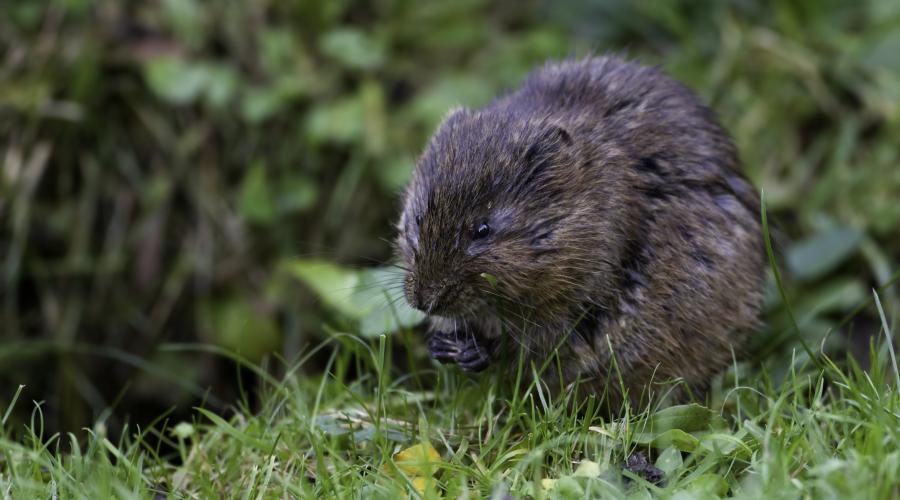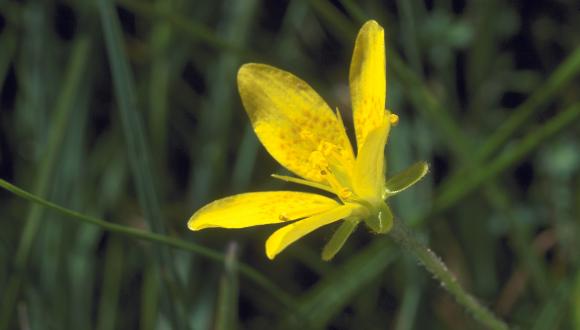
Water voles and licensing
Surveys don’t require a licence, but activities likely to disturb water voles or damage or destroy their burrows will.
Water voles receive partial protection under the Wildlife and Countryside Act 1981 (as amended).
It’s an offence to intentionally or recklessly damage, destroy or obstruct access to any structure or place used by water voles for shelter or protection.
Water voles are also protected against disturbance while within such structures.
Survey, science and research licences
Basic surveys for water voles don’t require a licence, provided that you take steps to avoid intentionally or recklessly disturbing animals in their burrows, or damage to burrows.
You should apply to us for a licence if this can’t be avoided or if scientific or research work could otherwise result in an offence in relation to water voles.
To apply for a licence for a research or educational project, email [email protected].
You should include:
- your name, address and telephone number
- full details of your project – covering what and who will be involved, and where and when
- a completed licence application reference form (if applicable)
If this is your first licence application for this activity, we’ll need two references from you. Your referees should be familiar with your work in this area and able to vouch for your competence.
Social, economic or environmental purposes
A protected species licence application for development projects should not be made until the necessary planning permissions and consents are in place. This should be considered when signing the relevant licence application declaration.
We can license activities for social, economic or environmental reasons (including development) that might affect water voles, as long as:
- the licensed activity will contribute to significant social, economic or environmental benefit
- there is no satisfactory alternative
- there will be no significant negative impact on the conservation status of the species
Download the Licence application form – works affecting water voles
Read the guidance on Licences for social, economic or environmental purposes
Read the guidance on Test 2 – No satisfactory alternative
If water voles are likely to be present on or near to a site, we strongly recommend that a suitably experienced person conducts a survey. Where voles or burrows are found, a species protection plan should be drawn up.
Movement of water voles
Based on recent research findings and experience from ecologists we now advise that trapping and translocation, rather than displacement, is the better option to use when clearing an area of ground which has water voles.
Translocation of water voles requires a licence. Before this can be issued, evidence must be provided for matters such as the:
- provenance of the water voles to be released
- carrying capacity of the receptor site
More guidance on translocations can be found in The Water Vole Mitigation Handbook.
Although live-trapping water voles above ground and away from their burrow entrances does not currently require a licence in Scotland, NatureScot considers their capture and subsequent translocation other than to approved receptor sites nearby, and especially where they are to be used for captive breeding, to be bad practice. This is unlikely to be supported unless part of a carefully planned, agreed strategic approach to water vole conservation that follows the process detailed in the Scottish Code for Conservation Translocations. Any such proposals may also require a consent on a designated site.
Possession of specimens
As water voles are only partially protected in Scotland, it’s not an offence to possess water voles or parts of water voles.
Licence changes and renewals
You should get in touch if you wish to amend a licence. But check your licence conditions first: you may be able to appoint agents and assistants without having to get them named on your licence.
Find out about adding persons to a licence.
You must also remember to contact us to renew your licence. Licences aren’t renewed automatically.
Find out more
Planning and development: protected animals
Contact
If you already have a licence number, include it in the subject line of your email, or have it to hand when you call.




